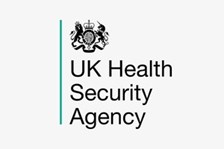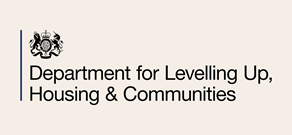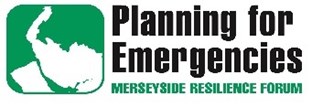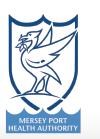About us
Merseyside Resilience Forum (MRF)
The Merseyside Resilience Forum (MRF) is a multi-agency partnership made up of all the organisations needed to prepare for and respond to any emergency in the county. We started in 2005 after the Government issued a law called the Civil Contingencies Act.
The members of the MRF represent leading public bodies (Category 1 and Category 2 responders). They make up the senior management group who are responsible for undertaking preparations for, and response to, major incidents and emergencies throughout the geographical area covered by the Merseyside Police Force. The forum meets on a regular basis and discusses the direction and polices relating to emergency planning.
Before the Civil Contingencies Act of 2004, co-operation between responders such as police, fire and ambulance was practised as a matter of routine and necessity, this was an informal process. When the Act came into force, these organisations, referred to as Category 1 and 2 Responders, have a statutory duty to plan for and co-operate with each other.
The MRF fulfils this requirement. The MRF is not a separate legal personality, nor does it have powers to direct its members. It is not a statutory body, but it is a statutory process. Put simply, it is a means by which Category 1 and 2 responders such as police, fire, ambulance, local authority and the utilities can get together and co-operate in the duties conferred on them by the Civil Contingencies Act 2004.
This section outlines the roles and responsibilities of the agencies and sectors that are likely to become engaged in the response to emergencies at the local level. The Civil Contingencies Act splits responders into two categories and imposes different duties on each.
Further details can be obtained by clicking on each agencies logo which will direct to their website.
Category 1 Responders
The British Transport Police (BTP) are the national police force for the railways. They would deal with an emergency on the railway infrastructure. Their aim is to keep you safe and make you feel secure while you travel.
The aim of the Environment is to create better places for people and wildlife, and support sustainable development. In an emergency they have many roles including preventing the impact of the incident, investigating the cause and restoring the environment.
The Maritime and Coastguard Agency (MCA) aims to prevent the loss of life on the coast and at sea. In an emergency they would also initiate and co-ordinate civil maritime search and rescue.

In an emergency Merseyside Fire and Rescue Service have roles such as rescuing people who may be trapped, preventing further escalation of an incident, dealing with chemicals or other contaminants in order to make the site safe as well as assisting other agencies.
Merseyside Local Authorities
The primary roles of the Merseyside Local Authorities in an emergency are to look after the survivors and their families, both long term and short term, as well as site safety and the recovery of the communities and sites afterwards. They also provide assistance to many other agencies, including warning and informing the public of all phases of an incident.

Merseyside Police co-ordinate the activities of those responding to a land-based sudden impact emergency, at and around the scene in most cases. There primary roles are to save and protect life, ensure the scene is preserved for subsequent enquiries, to establish and maintain cordons in addition to processing casualties.
NHS England (Merseyside) Area Team assess the initial information received in respect of a significant emergency and determine the appropriate initial course of action to be taken; they co-ordinate the wider NHS response.

Cheshire & Merseyside Integrated Care Board (ICB) supports NHS England as required and continually assesses the continuity of patient care in their commissioned services during an emergency.
The primary role of North West Ambulance Service (NWAS) is to save life. They also aim to protect the health, safety and welfare of all on site staff, alert the ‘receiving’ hospitals, instigate a triage process followed by treatment and transport of casualties.
The Mersey Port Health Authority aids in the control of infectious disease, environmental protection, imported food control and hygiene on vessels. They work closely with Public Health England, Food Standards Agency, Maritime and Coastguard Agency and other agencies.

The UK Health Security Agency's primary duty is to protect the public from infectious diseases and environmental hazards.
Category 2 Responders
British Telecom (BT) is the major provider of telecommunications networks and services in the UK. They provide services to corporate and public-sector customers.
HSE has a 24/7 response to incidents that includes a decision maker who will assess the initial incident and determine HSE's approach and what resources it can provide such as relevant specialists or technical advice.

The government company charged with driving forward our motorways and major A roads. This includes modernising and maintaining the highways, as well as manning the network and keeping traffic moving.
The primary role of Liverpool John Lennon Airport in an emergency is to respond to aviation emergencies within and in close proximity to the airfield.

The Met Office is the national meteorological service for the UK. They provide critical weather services and world-leading climate science, helping to make better decisions to stay safe and thrive.
The primary roles of Merseyrail Electrics are to provide a level and speed of response appropriate to the circumstances of all accidents, incidents and emergencies as they affect Merseyrail.
Overall Merseytravel are responsible for co-ordinating local passenger transport including Merseyrail, Mersey Tunnels and Mersey Ferries. They also provide transport to support Category 1 Responders in certain circumstances in an emergency e.g. mass evacuation.
National Grid maintain the flow through the Electricity and Gas Transmission Systems and attend to emergency events affecting the Gas and Electricity Transmission System.
Network Rail lead the rail industry response to a major incident and restore the railway infrastructure when required.
SP Energy Networks own and operate the electricity transmission and distribution network in Merseyside. The primary roles of SP Energy Networks in an emergency are to restore service in accordance with their existing emergency plans.

The Coal Authority manages the effects of past coal mining, including subsidence damage claims which are not the responsibility of licensed coal mine operators. It deals with mine water pollution and other mining legacy issues. It also owns, on behalf of the country, the majority of the coal in Britain, and licenses coal mining.
United Utilities supplies water and wastewater; in an emergency assist in ways such as alerting other agencies of any incidents, providing mutual aid and alternative water supplies.
Other Agencies
The Armed Forces’ national structure, organisation, skills, equipment and training can be of benefit to the civil authorities in managing the response to and recovery from emergencies. This support is governed by the Military Aid to the Civil Authority (MACA) arrangements. Reserves can be deployed alongside regular service personnel.

In the event of an emergency, DLUHC will immediately take steps to ensure that they can provide support to the local emergency response, where necessary and as appropriate.
The primary roles of Mersey Tunnels Police is to police the two Mersey tunnels. In an emergency their role is to ultimately protect life as well as preserve scenes, gather evidence and provide assistance to other agencies.

The Port of Liverpool Police have the responsibility of policing the Liverpool, Bootle, Birkenhead, Ellesmere Port and Eastham Dock Estates and Freeports, as well as the Manchester Ship Canal areas in the north west of England.
Third Sector (Humanitarian, Charity, Voluntary, Community and Faith Organisations & Groups)
The Third Sector can provide an extensive and diverse range of operational and support skills and services to statutory responders.
In the event of an emergency, British Red Cross can provide assistance in many ways such as supporting responders, running a 24/7 emergency response and arranging or coordinating humanitarian assistance.
In the event of an emergency, the Churches Together in the Merseyside Region can provide halls or premises, a ministry were required or may even be of help in a pastoral role.
In the event of an emergency, the Maritime Volunteer Service can provide resources, boats or equipment and will support teams in longer term operations.
RAYNET is a bespoke but flexible system to suit the requirement for local, national and international communications.
Rotary International can provide assistance with marshalling, registration and befriending of survivors and evacuees in addition to assistance with relatives and friends of the victims.
The Royal Voluntary Service can provide a 24/7 emergency response, rest centres and food and refreshments in an emergency.
In the event of an emergency, the Salvation Army aims to be of help in many aspects including reception centres/rest centres/mortuary support, chaplaincy/pastoral support and shelter/clothing provision.
We work together to make sure that we are prepared, that means that we are able to provide an effective response to emergency incidents which may affect you and to do this we will have:
- worked together to identify the risks that we all may face;
- worked together to write plans that will outline how we will effectively respond to any emergencies;
- trained together to make sure that we are able to respond;
- tested ourselves and our plans to make sure we can do what we say.
When we respond to an emergency we have common objectives and they are to:
- save lives;
- prevent the emergency from getting worse;
- help those that are involved, for example by getting them medical help;
- restore to normality as soon as possible;
- protect property;
- investigate the matter to establish how it happened and, if necessary, take action against anyone found to be responsible for causing the emergency to happen.
Our structure is very similar to what you will find within the majority of organisations, this is to help us prepare for and manage, control and co-ordinate our response to emergencies. This structure is set at three distinct levels:
- Executive/Director level;
- Management level;
- Operational.
The Act requires leading public bodies to work together to identify, plan and deal with major emergencies.
In our area, the Local Resilience Forum has been created to administer the legislation across the counties of Merseyside.
The Act requires the development of risk assessments in a published Community Risk Register. Risks in this context are those that could result in a major emergency and this Community Risk Register is the first step in the emergency planning process.
The aim of the Civil Contingencies Act (2004) was to provide modern legislation that would give responders a single framework for civil protection at a local level.
- Part 1 - focuses on local arrangements for civil protection, establishing a statutory framework of roles and responsibilities for local responders.
- Part 2 - focuses on emergency powers, establishing a modern framework for the use of special legislative measures that might be necessary to deal with the effects of the most serious emergencies.
You can view a short guide to the Act or the full document by following the links below.
We want to provide you with information that will:
- Prepare you: we will do this by making you more aware of the risks you may face and what you can do to prepare yourself, your family and friends in the event of an emergency occurring.
- What we will do: we will do this by telling how we respond to these emergencies and what we to prepare ourselves to respond. This includes how we will provide you with information and advice, as necessary, at the time of an emergency.
- Inform: provide you with relevant local information and easy access to our partner’s websites if you require more specific/detailed information.
We hope you will find this website of assistance and interest. Your feedback is important to help us provide you with what you need, both before, and if, an emergency occurs.
What is the Community Risk Register (CRR) and how has it been designed?
The CRR lists hazards that are a potential risk to the population and infrastructure within the MRF area. The hazard topics were identified on a national level by the Cabinet Office, then modified and adapted to make them specific to local hazards.
The hazards have been determined from studying historical data, and assessing the likelihood of their occurrence. The potential impacts of the risks posed by the hazards have been measured by using health, social, economic and environmental indicators, in accordance with the Emergency Preparedness guidance.
An event or situation that threatens serious damage to:
- Human welfare;
- The environment;
- Security (effectively war or terrorism).
In order to constitute an emergency, an event or situation must additionally require the implementation of special arrangements by one or more Category 1Responders.
What is emergency planning?
‘An approach to preventing and managing emergencies that entails six key activities – anticipation, assessment, prevention, response, and recovery. Integrated Emergency Management (IEM) is geared to the idea of building greater overall resilience in the face of a broad range of disruptive challenges. It requires a coherent multi-agency effort'. (Emergency Response and Recovery – HM Government, 2005)
What are emergency plans?
A plan is a written record of agreed future actions intended to be taken to prevent an emergency, or to respond to a disaster or emergency.
Why plan?
- Prepare for unusual circumstances;
- Ensure delivery of pre-planned responses;
- Formulate a ‘check list';
- Control the actions of others;
- Protect oneself and organisation(s);
- Fulfil a legal requirement;
- Create a comprehensive reference document.
What are the benefits of training and exercising?
Through carrying out joint training and exercises partner agencies and stakeholders are able to provide an integrated and coordinated response. This collaboration familiarises all parties with the management framework during a response, highlights problems, ensures plans and procedures are up to date and formulates working relationships.






























